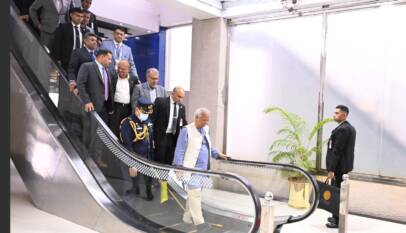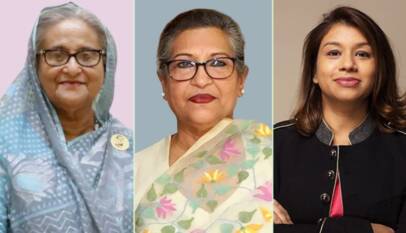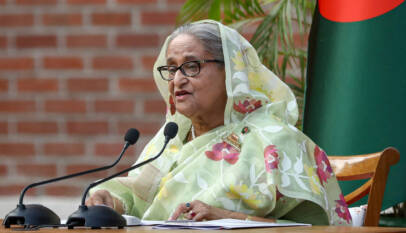Sheikh Hasina’s Departure: A Setback for India Amid Rising ‘Anti-India’ Sentiments in Bangladesh
With the end of Sheikh Hasina’s rule in Bangladesh, the country’s youth are celebrating their newfound freedom on social media. However, her departure is considered a significant setback for India. Experts believe Hasina’s exit will likely increase anti-India sentiments in Bangladesh. Despite the good relations between the Indian and Bangladesh armies and the deployment of BSF along the India-Bangladesh border, the Indian Army remains on high alert due to the current situation.
Prioritizing India’s Strategic Interests
Foreign affairs expert Parul Chandra asserts that Hasina’s departure is a considerable loss for India. During her 15-year tenure, India-Bangladesh relations flourished, with Hasina prioritizing India’s strategic and security interests. Even though the Teesta Agreement remained elusive, creating domestic challenges for her, she ensured connectivity, security, trade, and the expulsion of North East insurgents from Bangladesh.
Chandra notes that China has significantly strengthened its presence in Afghanistan, Nepal, Bhutan, Sri Lanka, and the Maldives. Despite receiving substantial infrastructure assistance from China, Hasina was cautious not to jeopardize India’s interests. Her close association with India raises concerns that her departure could amplify anti-India sentiments in Bangladesh. The pro-Pakistan Bangladesh National Party and Jamaat-e-Islami, along with radical elements, pose additional challenges for India.
“Anti-India Sentiments a Commonplace in Neighboring Countries”
Smriti Patnaik, a research fellow and South Asia expert at IDSA, observes that it remains uncertain whether the Awami League will join Bangladesh’s interim government. She comments that anti-India sentiments are commonplace in India’s neighboring countries, where it’s standard practice to involve India when opposing domestic issues.
External affairs expert Sanjeev Srivastava acknowledges the instability in India’s neighborhood but emphasizes India’s “neighborhood first” approach. Despite the challenges, he believes India’s capabilities and constructive role will prevail. Srivastava notes that anti-India sentiments often fueled by Pakistani agencies exist in neighboring countries. Nonetheless, he is confident that the strong relationship between India and Bangladesh will endure these challenges, similar to the positive sentiment seen in the Maldives.
Strong Military Relations Between Bangladesh and India
Smriti Patnaik highlights the robust relationship between the Indian and Bangladesh armies, which has improved since 2007. As a regional power, India garners support from Bangladesh, regardless of its regime. The Indian and Bangladesh armies conduct joint exercises, and similar collaborations occur with the Navy, Coast Guard, and Air Force. Additionally, Bangladeshi officers receive training at India’s National Defense Academy, reinforcing the strong military ties between the two nations.
Raipur–Visakhapatnam Economic Corridor to Slash Travel Time to 5 Hours, Power Regional Growth by 2026
New Delhi, Dec 7: The upcoming 6-lane greenfield Raipur–Visakhapatnam Economic Corridor is…




















